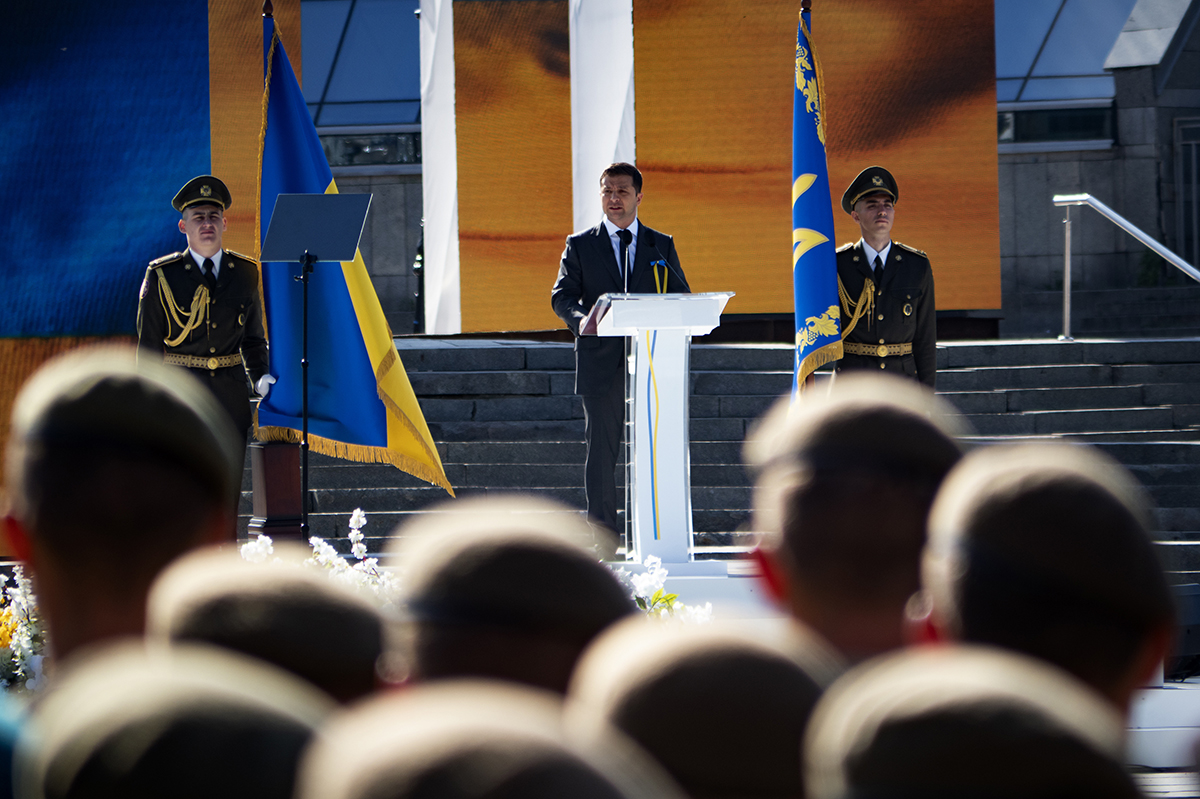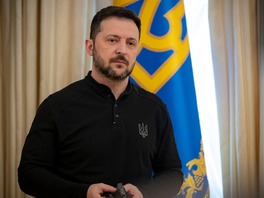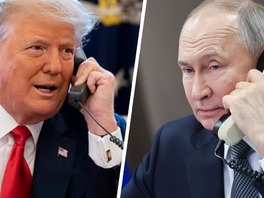Ukraine needs to elaborate its own vision and a realistic strategy to settle the conflict with Russia to avoid risks of having the region’s security problem solved without the country`s involvement.
The return of Russia’s delegation to PA CE, France and Italy’s “flirting” with Russia and Donald Trump’s suggestion on Russia’s return to G-7 all stir up an emotional reaction within Ukraine’s society; in fact, these actions should only serve as a confirmation of what this article’s author and other experts warned three years ago.
In the absence of Ukraine’s own systematic plan on the settlement of the conflict, a vision of the country’s further coexistence with Russia and an adequate foreign policy strategy – which would comply with modern European and world realities instead of old paradigms – sooner or later Ukraine’s Western partners might start considering easing sanctions or direct talks on regional security problems with Russia, not necessarily with participation and in interests of all the countries concerned.
Ukraine’s mistake from the very beginning of the conflict with Russia was limiting our foreign policy to expectations that Western sanctions could force Russia to leave Donbas and return Crimea. The sanctions worked and showed Russia that there would be no impunity like with Georgia in 2008. They imposed a high price of the conflict on Kremlin and reduced the imperial appetites, forcing Russia to abandon “Novorossiya” concept and become more careful with ambitions to renew their geopolitical status. However, sanctions cannot be the sole policy towards the nuclear state with the UN Security Council permanent seat, economic potential and global engagement like in the case of Russia. The danger of weakening of the sanctions could have been easily predicted starting from 2016. It were Russia’s interference in the US elections and Skripals’ case that delayed it for a couple of years, and it is only now when some Western partners started to publicly demonstrate their desire to return to “business as usual” with Russia.
The Western partners can only keep or even increase sanctions on Russia when their own security interests are at stake, or when Ukraine proposes effective ways of how sanctions – linked with other international or bilateral instruments of pressure and positive engagement at the same time – could lead to settlement of the crisis. Under the current paradigm of Russian and EU policies, it is hard to imagine EU tough sanctions on the Russian Federation and a security vacuum between the EU / NATO and Russia remaining for long or even mid-term prospective unless Russia starts new aggressive actions against other states.
The worst thing Ukraine can do when Russia returns to PA CE or any other international forum – or if sanctions were softened – is “to get offended” and start using aggressive rhetoric against its Western partners, losing their support while remaining in confrontation with Russia. In this case, the dialogue between Russia and the West would only intensify, while Ukraine’s involvement in such a dialogue would noticeably weaken.
Only Ukraine’s proactive foreign policy can make the country an actor, a subject in the negotiation processes. Moreover, such proactivity has to include more than just the Minsk agreements or the issue of the occupied territories. The conflict is multi-dimensional and its geopolitical dimension is a defining one – not bilateral or internal ones. All stakeholders and intermediaries stress that there is no way to find a sustainable formula for Russia-Ukraine conflict resolution without involving issues of the common European security architecture that was seriously damaged by the Kremlin's steps in 2014.
What these agreements could entail?
The Belorussian president Lukashenka has been the only one for the moment to make an official proposal in this respect. Last year he occasionally repeated the idea of holding a new security conference in the pan-European space, naming it “Helsinki 2” – the new agreements on rules in the pan-European space, in continuation to the Helsinki Conference on Security and Co-operation in Europe in 1975.
Back in the days, many perceived Helsinki 1 as the West’s concession to the Soviet Union, albeit today the prevailing opinion is that 1975 Helsinki Final Act became the first step that led to the Cold War’s victory for the West, democratization and then breakup of the USSR. That is the reason why Russia would probably prefer not “Helsinki 2” but “Yalta 2” type of direct arrangements between the US, EU (Germany and France) and Russia on new borders and rules in Europe. While American and European stakeholders clearly reject “Yalta 2”, some of them already demonstrate a desire to get out of the current deadlock and reach new rules of the game.
Moreover, a couple of months ago, a practical example of such an arrangement occurred on Ukraine's other border. The example concerned Ukraine’s neighboring Moldova. The US, EU and Russia – whose interests just happened to coincide at that moment there – handled a deep internal political crisis in the country in course of a few days. International players quickly reached an agreement, “explained” the situation to their affiliated local political groups, and former implacable opponents quickly established the coalition, thus giving Russian diplomats an argument in their discussions with their Western partners: “as you can see, we can do it together when we reach agreements”.
Ukraine, however, is not Moldova, and the situation here is much more complicated. There is a legal fact of occupation and illegal annexation of the Ukrainian sovereign territory, Crimea, which systematically distinguishes this conflict from other conflicts in the post-Soviet space. There are more stakeholders – with some being impossible to reach an agreement with – and there is plenty of non-systemic players that can spoil any potential agreement. Nevertheless, it does not change the crucial point: yesterday’s opponents can reach agreements if their interests coincide.
A military solution to the conflict in Ukraine’s east will lead to catastrophic consequences, thus rendering it impossible and unwelcome by all international players. “Freezing” the conflict and classifying it as “protracted” one is possible and even probable; the price of maintaining it, however, is too high not only for Ukraine but also for international players – the EU first of all, but for some others too, including the US – though situation there is more complicated. The precedent of violation of international assurances, given to the country that abolished nuclear weapons, will serve as an obstacle to global nuclear disarmament processes and non-proliferation of weapons of mass destruction, distorting the rule of law in international relations.
That is why attempts to reach an agreement will continue. Since the underlying causes of the conflict are geopolitical ones, the agreements will primarily address the issues of reviewing or improving the regional or continental security architecture.
While at the official level we see ups and downs in Russia/West relations – such as the return of the Russian delegation to PACE and prolongation of sanctions, Nord Stream 2 and Skripals` story, Moldova deal and inviting or uninviting Russia to G-7 etc. – the experts have been already actively discussing settlement of the geopolitical conflict and filling a security vacuum between NATO/EU and Russia for years. Their discussions have been organized by everyone who is concerned about the current impasse in international relations: from German political parties foundations, leading British universities up to the key US think tanks. The typical consultation includes representatives from the US, Germany/France/Poland/other EU countries, Ukraine and often other Eastern Partnership countries, and the Russian Federation. The format is semi-official diplomacy, track 1.5, meaning the work is done without any official directives but in cooperation with official authorities, usually by former officials or experts that do not currently hold any official status but are closely linked to official circles. The goal is to reach a consensus on the informal level that would satisfy all stakeholders in the regulation of Ukrainian-Russian conflict and, most importantly, outlining possible options for updating the European security architecture, where current enemies and opponents could coexist peacefully and the suffering of the people de-facto affected by the war could be decreased. Ideally, the conflicts would be settled and everyone could have guaranteed security.
During the early stages – in 2014-2016 – such expert discussions were reminiscent of TV monologues rather than a “rehearsal” of real international negotiations. With time, however, specific proposals appeared, which – despite the different authors – all sounded alike. Earlier this year, the U.S. Institute of Peace counted 12 peace plans for the Donbas during a discussion in Washington D.C. They all had specific proposals, several grounded in the academic literature on conflict resolution. The majority of them was based on the experience of conflict negotiations in the past 50 years, best practices from conflict studies, peacekeeping and peacebuilding diplomacy.
There were more answers to the questions of “How?” to regulate conflicts rather than to “Why?” players who started them would drastically change their positions and start reaching agreements. The mechanisms are clear, yet the motives to adopt them are not. The fact that the current security situation suits very few players means that stakeholders will have to reach agreements despite all their differences.
What position should Ukraine take in revising the regional security architecture?
Recently I had an opportunity to react to some new ideas produced by a group of distinguished Western and Russian experts of how realistically the European security architecture could be reviewed or modernized. As I was not a part of this distinguished group of expert and could only comment, I propose three basic points for any further discussions or negotiations on the modification of the regional security architecture:
1.There can be no agreement regarding Ukraine or any state of the region without their consent and involvement in negotiations. Consultations on security arrangements on between main actors must be open to the states concerned;
2. Renewal of Ukraine`s sovereignty on Crimea is a cornerstone for new European security architecture. The sides may find mutually acceptable arrangements, which must be based on respect of Ukrainian territorial integrity and internationally recognised borders – including Crimea.
3. Any new security arrangements must be based on effective, legally binding security guarantees for countries that chose nonalignment. Freedom of choice for countries to seek membership in one or another political or military bloc must be respected in line with the international law, those who are not a part of any military block must receive efficient military guarantees, not just political reassurances, of their independence, sovereignty and territorial integrity.
These three points are prerequisites for the countries of our region not to become objects in someone`s games or observers in other states negotiations, which might influence their future. These points reflect the interests of all the countries of our region, including those that declared their Euro Atlantic ambitions or joined pro-Russian military bloc CSTO, as well as the countries that wish to remain neutral. They can definitely be accepted by all political forces inside of Ukraine – both pro-government and the opposition, including ideologically different groups of today`s opposition.
The aggressive reaction on any intellectual discussions in this respect that has prevailed in recent years has made it impossible to have a serious debate in Ukraine’s society on the country’s position on multilateral or bilateral negotiation processes. The black-and-white picture of the world – a paradigm, where exists nothing but either “betrayal” or “victory” – weakens Ukraine and places it outside of the global and regional discussions, despite the fact that Ukraine, being a country that suffered most from Russia’s aggressive actions and weak international institutions, should have been the one leading them.





